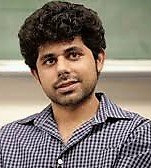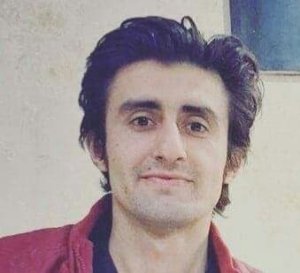Farman Ali
 As the world pays adieu to 2018 and about to enter 2019, some big issues such as destruction of environment by climate change, rising inequality, poverty and joblessness, agonies of migration and displacement as a result of conflicts, disasters and the neoliberal economic policies as well as antagonism of big powers and their quest for hegemony are on the horizon to eclipse hopes, dreams and enthusiasm of people.
As the world pays adieu to 2018 and about to enter 2019, some big issues such as destruction of environment by climate change, rising inequality, poverty and joblessness, agonies of migration and displacement as a result of conflicts, disasters and the neoliberal economic policies as well as antagonism of big powers and their quest for hegemony are on the horizon to eclipse hopes, dreams and enthusiasm of people.
For the working people of Pakistan, the year 2018 in retrospect was dominated by judicial activism, rising intolerance and extremism, weakening of democratic institutions, degeneration of society, stifling of media and shrinking spaces for dissenting voices and freedom of expression, increased repression on marginalized communities.
It 2019, the scenario is more bleak and worrisome. The false hopes given to the people by the Imran Khan’s PTI government in the name of change are fast f

ading; the hocus-pocus and U-turns of the prime minister and his coterie have created chaos in every stratum of society. The government seems to be clueless and directionless about solutions to burgeoning problems, which are quite worrisome.
The High Asia Herald spoke to various people – academics, thinkers, activists and development experts — to reflect on the outgoing year and the future prospects for freedom of expression, democratic dispensation and society.
Majority of them were skeptical about any improvement in the sorry state of affairs, and concerned at the shrinking space for dissent, enforced disappearances and rising authoritarianism.
As Dr Ammar Ali Jan, an academic, thinker and activist put it, “2018 has been a year symptomatic of the uncertainty and chaos that marks our era. We have witnessed the descent of our society into authoritarianism, with fear andsuspicion gripping us, from the political sphere to our everyday lives.” “But we have also seen incredible resilience on part of different sections of society, indicating that the quest for freedom can be suppressed, but never be eliminated. “In this tussle between hope and fear, what is at stake is the dignity of our people, a dignity that has been trampled upon by those at the helm. Jan wishes that 2019 may bring peace and justice in the country.
“And more importantly, may we all participate in the construction of a just world, so that life can emerge, in all its vitality and audaciousness, from the shadows of death and mediocrity that currently constrain it,” the resolute academic says.
Is new year eve a mere annual ritual or a juncture of the civilizational journey to reflect on events, achievements and failures?
For Aziz Ali Dad, a Gilgit-based social scientist and writer, “New Year eve is the time when the whole past flows into the present. This process links our future to the past which makes it difficult for us to form a new future. However, the flux of time can be managed by understanding the past without becoming its prisoner and projecting our mental horizons to the future for creation of alternative worldview and open society,” he comments.

“The new dawn means that the rays of rising sun will overcome long darkness that has engulfed our soul, mind and vision,” he suggests, and wishes that “may the new year enable us to emancipate ourselves from the prisons of delusion, dogma, religiosity, megalomania and ignorance.”
Governance and politics
For Gilgit-Baltistan the year 2018 was another year of subjugation and humiliation by the bureaucratic system. Its two million people are still deprived of their fundamental democratic and human rights and being dispossessed of their land and resources.
The imposition of another governance order was rubbing salt to the wounds of the people, provoking the lawyers to challenge it in the Supreme Court of Pakistan.
The disputed region also witnessed some ugly incidents such as attacks on schools for girls and police, intimidation of lawyers, social and political activists. This aggravated the sense of deprivation of the people, especially the youth bulge, pushing them towards despair, resulting in rising extremist tendencies, incidents of suicide and migration to urban centres chasing their dreams of a decent life.
Progressive political activists like Baba Jan and his companions, peasants leaders Maher Abdus Sattar and others are, perhaps, the only political prisoners in Pakistan. Hundreds of Baloch, Sindhi and Pakhtoon activists are still missing.
The year 2019 is crucial because China-Pakistan Economic Corridor (CPEC) has entered into implementation phase. However, the absence of representation of Gilgit-Baltistan to raise local grievances at the policy and decision making level continued. Developments related to CPEC catapulted Gilgit-Baltistan at regional level and it attracted attention of India that objected on CPEC in Gilgit-Baltistan as illegal because of the disputed status of the region. This has made region more vulnerable to new great game being fought on the turf of High Asia.

“On this day as we reflect on the previous year and anticipate the possibilities in our future, it is pertinent to remember those who will spend another New Year’s eve behind bars, or waiting to hear about their “missing” loved ones, says Dr Jan. He goes on to say these individuals embody the suffering that frames the existence of a vast majority of our people. But more importantly, they also express the legacy of the inextinguishable courage that has challenged the mightiest of tyrants who have ruled our lands.
Who can feel the agony and pain of the young activists and their families than their loved ones and comrades.

“Hey dear Kako [brother] Baba Jan again one year passed,” comments Shagufta, sisters of the ‘Che Guara of GB’ in a moving message on her Facebook page. “It’s been 7 years we are living without you. I know you are innocent, but still behind bars… your only sin is you are the voice of the poor and the oppressed people Of GB.” She is optimistic and believes that one day the people of Gilgit-Batistan will realise “you are the real son of the soil. Salute to your struggle, courage and happy New Year to you and your friends,” says Shagufta in her post on her Facebook page.
Baba Jan and 15 others are languishing in Gahkuch jail for the last seven years due to a miscarriage of justice. Those who raise their voices for rights and public issues face intimidation, blasphemy and sedition charges. The sword of Damocles of Schedule 4 is always hanging on their heads. In the absence of critical thinking, common national and political narratives, the Gilgit-Baltistan society, which is already divided on the lines of ethnicity, sect, tribe, and clan, is descending into regression and obscurantism.
Reflecting on the society, Zaighum Abbas, a Lecturer of Political Science at Government College University Lahore in his new year resolve says, “May we learn to get organised, putting aside our racial, ethnic and sectarian discords and struggle for a Gilgit-Balistan that values human rights. “May 2019 be a year of more dissent and less conformity; may we have the audacity to say ‘No’ in the face of cruelty, injustice, and oppression.
“May we stand up to the powers which are taking away our basic liberties and incarcerating our comrades just for demanding them.”
Reminding the youth and activists of the unmatched sacrifices of Baba Jan and others, Abbas says “May we all become Baba Jans who has stood up against the regressive forces in our land. “May 2019 be a year of success to all the political activists and comrades fighting for a more egalitarian world.” Others, however, were optimistic about the future.

“We are in a prison! Our ideals and ideas are in shackles; we are not allowed to enjoy our rights and freedom… space for working class to breathe and raise their voice for basic rights is shrinking.”–Sherbaz KhanFor Kosar Bano, 2018 was a successful year of resistance and voice for the people of Gilgit-Baltistan. Women, men, and youth from across GB voiced their concerns at national and international forums for the constitutional rights, says Bano, who has recently graduated from the Institute of Development Studies, University of Sussex, the UK in Genderand Development on Chevening scholarship.
Women’s involvement in activism for social and political rights as well as against patriarchy and obscurantism is encouraging, she said.
With a vast experience in social mobilisation, gender, development, women and child rights, Bano in her new year resolve reiterates that “In coming year we will coordinate more efforts to raise our issues at national and international forums for making Gilgit-Baltistan a better place for men, women, girls, boys to live a life with full potential, dignity and respect.”
Sherbaz Khan, who is a political and social activist based in Germany describes Gilgit-Baltistan as a prisoner.
“We are in a prison! Our ideals and ideas are in shackles; we are not allowed to enjoy our rights and freedom,” he quipped. Those who speak for rights and freedom are incarcerating in Ghahkoch jail. Space for working class to breath and protest for basic rights, progressive ideas is shrinking.
In his resolution for 2019, he says “we must determine the path to achieve our dreams and hopes and fight for political prisoners’ release and for building a society in Gilgit-Baltistan where every one could live with dignity and freedom in real sense, says Sherbaz.
For a healthy society gender balance is a must starting from home. We should respect eqaulity of men and women, he suggests.
TOURISM
Hospitality industry was perhaps the only sector of economy that witnessed boom despite lack of infrastructure and facilities. Forbes and Times of London have recommended Gigit-Baltistan’s Hunza district as a tourist destination of choice for 2019.
“This renewed confidence may re-introduce international tourists to northern Pakistan,” hopes Sultan Abbas, an international development expert.
He goes on to say “together with continued domestic tourism, the opportunities for business and livelihoods will significantly increase.

However, he cautions about the challenges to Gigit-Baltistan’s ecology and society due to climate change and influx of tourists to the mountainous region.
“While many will benefit from the new businesses, hundreds will face the brunt of climate change as 2019 is projected to be one of the hottest years ever. The lack of preparedness to deal with flashfloods, torrential rains, and heat wave may disrupt agriculture and reverse decades-long development gains,” he cautions.
Mustafa Kamal, a development expert and culture activist says “2018 was not a year of hope for the inhabitants of GB. The year witnessed some unpleasant incidents depicting degeneration and division in society. For instance a cultural event triggered a controversy and debate for and against the women’s participation in dance during a private Tv channel’s show in Gilgit.
This was a manifestation of men’s double standards vis-à-vis gender role and liberty in Gilgit-Baltistan.

“It can be hoped that 2019 will be a better year for women and they will have a strong voice to change the society,” Mustafa said.
How the students and youth spent the year 2018 and how their dreams were shattered could be guaged from the reflection of young and energetic activist Anayat Baig on the previous year.
Education
“Like the past one decade, the year 2018 was a year of frustration and despair in searching answers to the questions that whether our next generation will be able to get fundamental rights including access to quality education, jobs, healthcare and shelter at their doorsteps,” said Baig, who is a student activist.
“Regretably, it was not only my agony and frustration but all those young boys and girls who are compelled to migrate to urban centres and live in inhuman conditions to get education and livelihood. However, the unflinching struggle of youth and students for freedom from darkness, uncertainty and suffocating system was a ray of hope. The social injustices and status quo politics shattered our dreams. Many great leaders, friends and comrades left us.
“For the year 2019, I reaffirm the resolve that we will live togather with full potential and will never compromise on the inalienable right of living with dignity and peace,” Baig said.

The High Asia Herald is a member of High Asia Media Group — a window to High Asia and Central Asia
